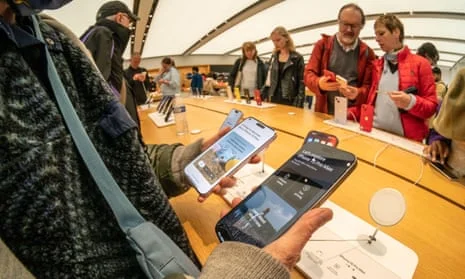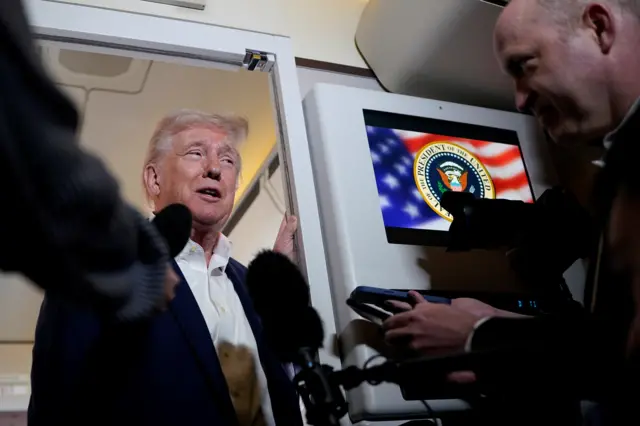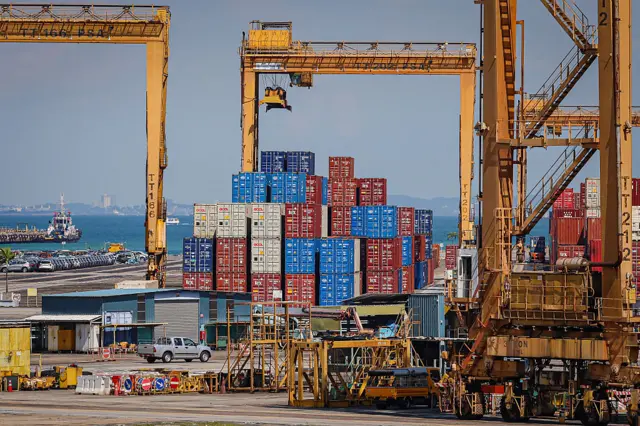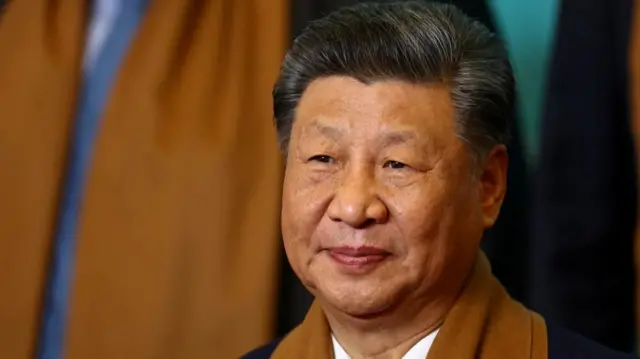
Trump’s Tariff Firestorm: How New US-China Trade Tensions Are Shaking Markets and Farmers Alike
With an emboldened return to hardline trade policies, US President Donald Trump has ignited fresh tensions in the global economy by announcing sweeping tariffs on Chinese imports—declaring that "no one is off the hook." As markets, policymakers, and ordinary Americans brace for the impact, the world is witnessing another escalation in an already charged US-China trade war, one that not only reverberates through boardrooms and stock exchanges, but also through America’s heartland and diplomatic corridors from Singapore to Hanoi.

Financial markets in Asia responded swiftly to Washington’s moves, with Chinese and Hong Kong shares edging higher in early trading on rumors of temporary relief for technology-sector tariffs. But analysts like Tim Waterer of KCM Trade warn the real effects are still to unfold: “Risk assets have been given a welcome reprieve... whether today’s positive market move can be maintained throughout the week is another matter, particularly with so much still up in the air as to how tariff negotiations will play out.”

US officials, including Trade Representative Jamieson Greer, emphasize the administration’s intent to force fairer trade and reshore American manufacturing, even at the cost of short-term pain. "We certainly need to have semiconductors, and the downstream electronics supply chain move to the United States…What happened is, this type of supply chain moved from the tariff regime for the global tariff…the reciprocal tariff, and it moved to the national security tariff regime," Greer clarified in a candid interview with CBS’s Margaret Brennan. While some exceptions for electronics exist, these are termed 'temporary' and part of a broader strategic calculus—leaving businesses and consumers alike facing uncertainty over future costs.
The tit-for-tat has drawn robust responses from Beijing. China, which imports substantial US agricultural goods, has slapped a 125% tariff on American imports, on top of previous duties—sending tariffs on US soybeans to a staggering 135%. For American farmers, especially in Midwest states that bolstered Trump’s re-election, the consequences are real and deeply personal. According to the American Soybean Association, the sector lost about $27 billion in the 2018 trade war, and recovery remains out of reach for many.
Meanwhile, China accelerates efforts to diversify its agricultural imports, turning to Brazil and Argentina, whose soybean exports have soared as US exports flatline. The stakes are high: both for growers at home and for the balance of global power. As Chinese President Xi Jinping lands in Vietnam to strengthen regional alliances and trade ties, he issues a veiled warning against “protectionism” and calls for safeguarding multilateral trade and supply chains.

The months ahead promise turbulence, not only for financial markets but also for millions whose livelihoods depend on the ebb and flow of geopolitics. Will these new tariffs force a recalibration of global commerce, or push US farmers and consumers into deeper hardship? As the White House signals talks with over 70 nations and China rallies support beyond the Western hemisphere, the world is left to ponder whether a new trade equilibrium—or another round of economic brinkmanship—awaits.
How do you think Trump’s tariffs will shape America’s future and the wider world? Share your perspectives below—your opinion matters in this historic moment.
Related issues news
What is Trump's tariff war?
From January to April 2025, the US trade-weighted average tariff rose from 2% to an estimated 24%, the highest level in over a century. Trump escalated an ongoing trade war with China, raising baseline tariffs on Chinese imports to an effective 145% after April 9, 2025.
What is China's tariff on the US?
After imposing 125% tariff on American goods on 12 April, 2025, China said that if the United States imposes further tariffs on Chinese products, it will ignore them, because it has already become impossible for the Chinese market to accept U.S. imports at the current tariff levels.
Is Nvidia exempt from tariffs?
Apple (AAPL), Nvidia (NVDA), Dell (DELL), Taiwan Semiconductor (TSM), Super Micro Computer (SMCI) and other technology product makers won a huge exemption from President Donald Trump's 'reciprocal' tariffs.
Are there tariffs on iPhones?
US President Donald Trump's administration has exempted smartphones, computers and some other electronic devices from 'reciprocal' tariffs, including the 125% levies imposed on Chinese imports.